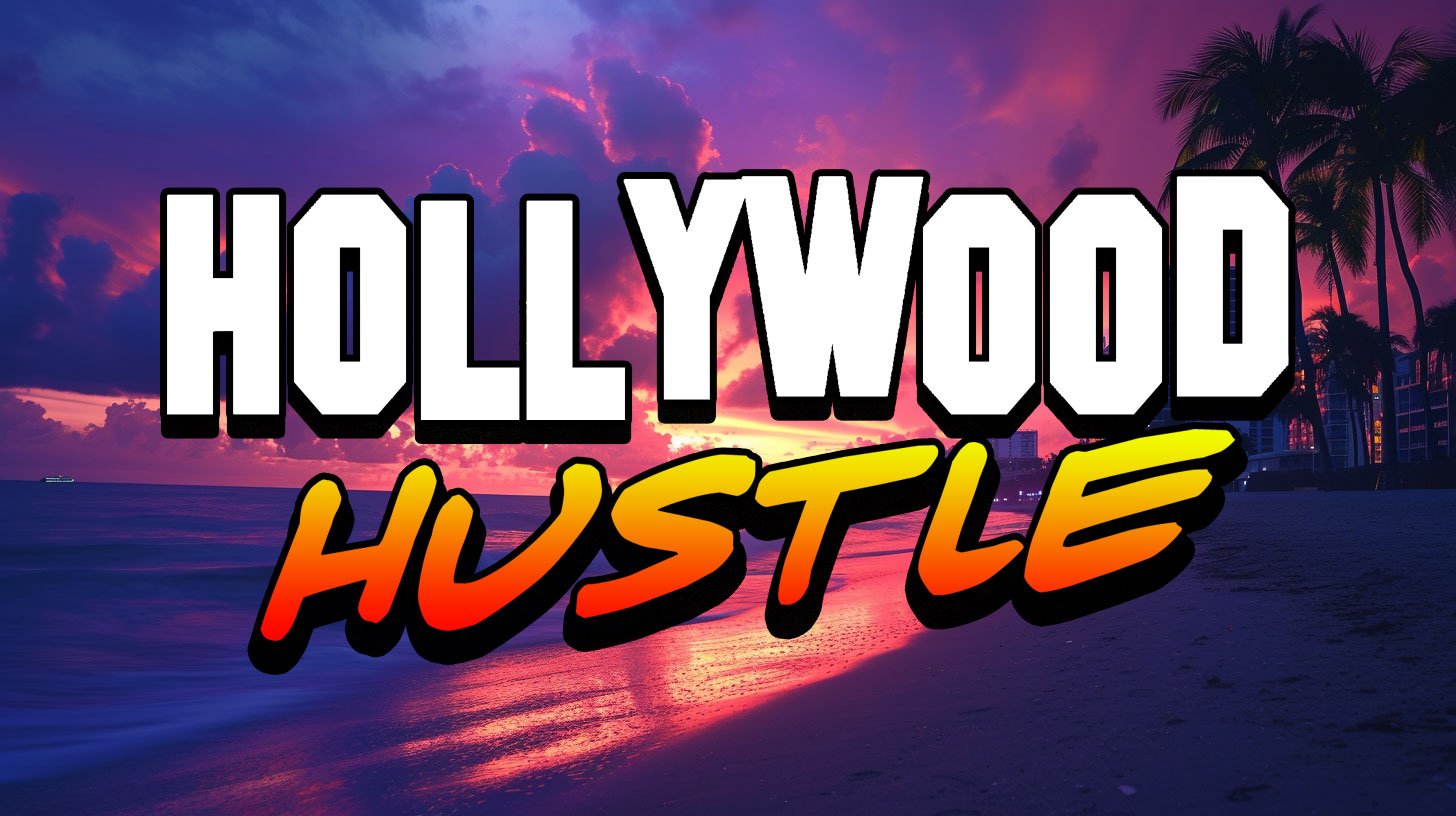
Hollywood Hustle
Around Christmas 2022, a friend gifted us a super fun card game named "Cinephile." I thoroughly enjoyed playing it and exploring its numerous game variations. I even came up with a few of my own! However, all the games essentially boiled down to challenges like "Name all the movies this person has been in" or "Six degrees of separation." Each time we played, I found myself wishing for a game where the objective was to cast actors in a movie.
So I came up with a card game where you do just that.
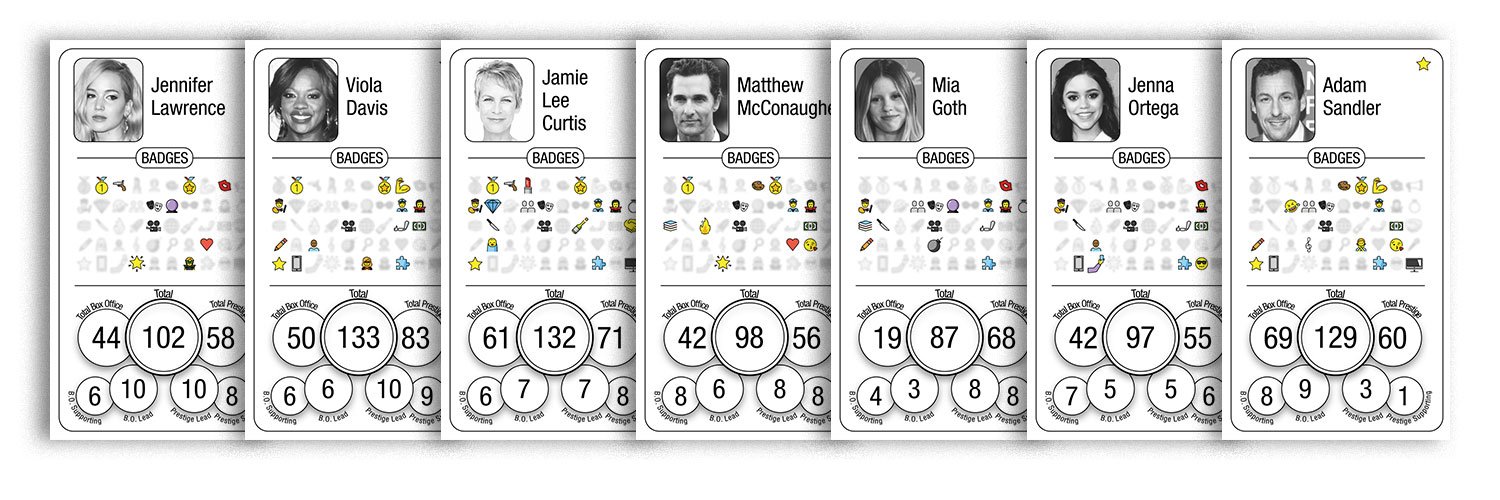
The Idea
As someone who has made a few movies, loves everything about making movies, and likes playing movie-based games, I wanted to create a card game that somewhat captures the experience of a Hollywood producer making a film.
Honestly, the gaming mechanics came pretty quickly: You have a bajillion cards with every movie genre, then at least 12 movie ideas for each genre, then a bajillion more cards with every Hollywood actor and director, and finally, a stack of “chance” cards (Buzz and Pitch cards in this game!). The players or “producers,” would take turns rolling the dice and building a movie while dealing with the fallout of the chance cards throughout. Producers can trade cards, pitch ideas for rewards, and all of that jazz!
At the end, all players will have a genre, a movie with a logline, a director, and four actors.
The real question and hard part was: How do you make ~2 bajillion cards for the game?
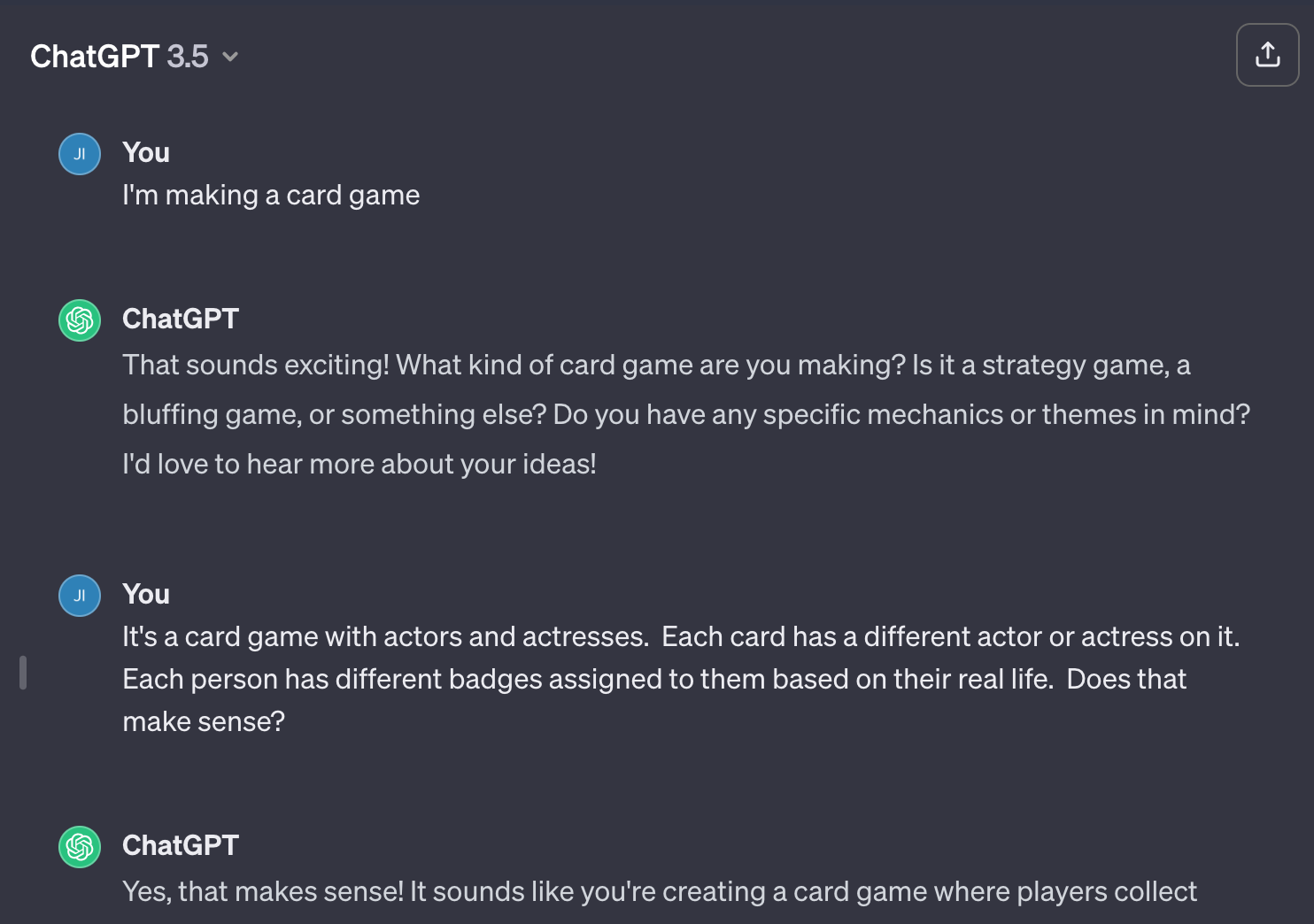
My First AI Project
We’ll get back to Hollywood Hustle in just a second.
Two months before I came up with Hollywood Hustle, this thing called ChatGPT became available to the public. I started using it the first week … a lot. I mean, I was a monkey touching a monolith. If you look around my site, you’ll see that I’ve been using all kinds of AI tools for a LOT of creative projects, but ChatGPT was the spark that started it all.
When I signed up for a subscription, at the time it was still through Google Forms and they asked me some questions before they let me into the club. A friend of mine was denied so I was nervous I wouldn’t pass the test. It asked, “What do you use ChatGPT for?” I figured I might as well be honest so I conjured my best John Conner voice through text and wrote, truthfully, “At this point, nearly everything…”
I was given a full membership that day.
The first thing I did was learn to code and a few other things, but nothing was a large-scale project where I could leverage the power of AI to do something I otherwise couldn’t physically do by myself.
Then our friend gave us Cinephile for Christmas 2022 . . . and now we’re back in the game!
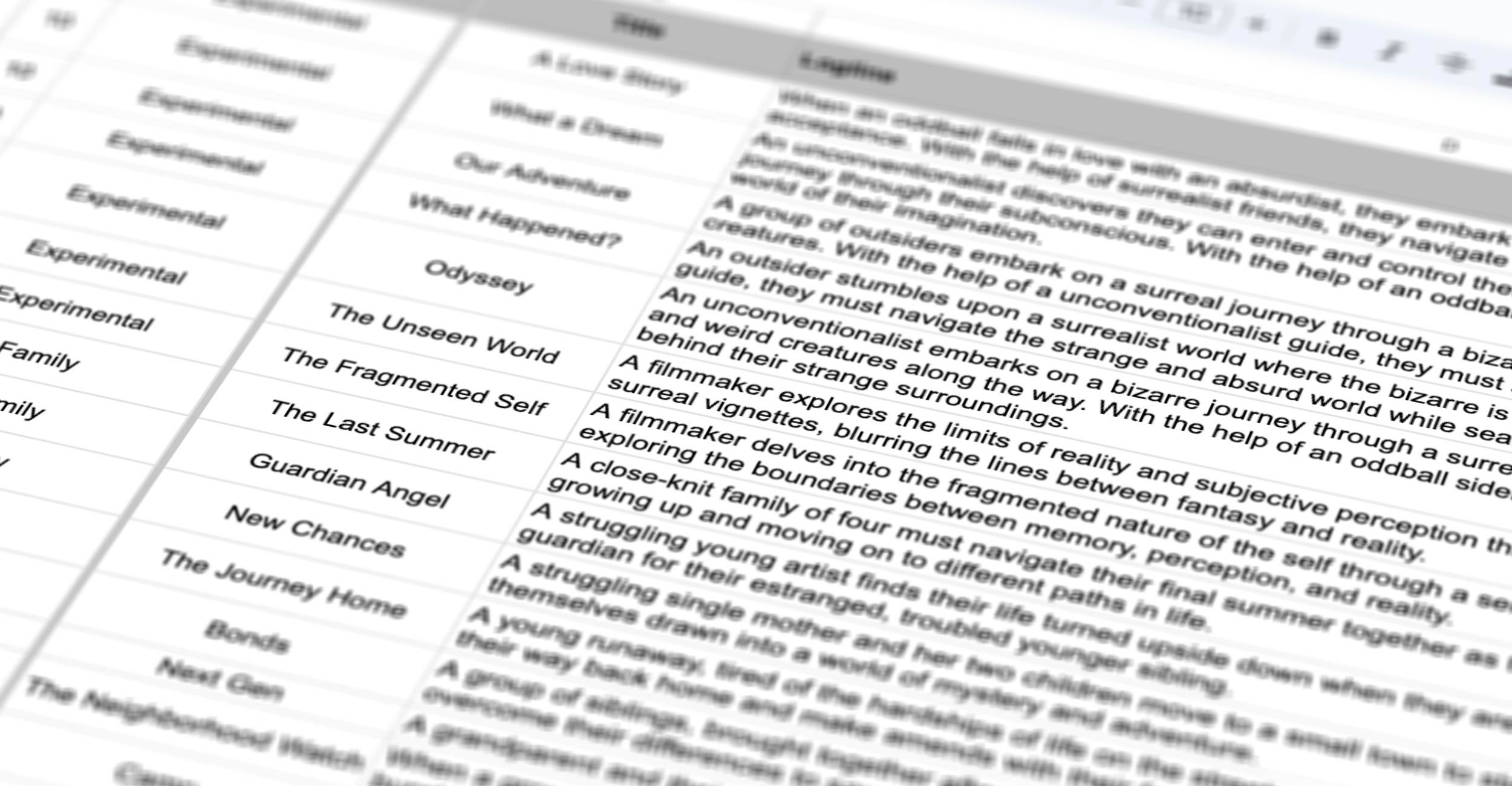
Making The Game
Using the creation of this game as a test, I had ChatGPT help me with every single aspect of the game. I quickly discovered it was like having the greatest creative partner in the world. I opened up Google Sheets and started building massive databases.
For example, I simply asked GPT “Give me a list of every movie genre there is: Action, Westerns, Romantic Comedy, Horror…” and hit enter and, boom, that’s done. “Give me a list of every major actor and actress in Hollywood…” Bang, done. From “Here are some ideas I have for Buzz cards … give me 30 more ideas.” To, “I’m making a card game where you blah blah blah … give me 50 possible names for the game.” Whether I came up with the name Hollywood Hustle or GPT did is something I’ll take to the grave 😉
Within a few hours, it completely changed the way I approach and work on creative projects. Instead of spending time and creative energy thinking I should make a “Comedy,” “Romantic Comedy,” “Dark Comedy,” and “Buddy Film,” genre cards … I was spending time and energy looking through all of the loglines GPT gave me for those genres and made them more fun and entertaining. I had GPT do the tedious grunt work while I concentrated on the fun stuff. It was awesome.
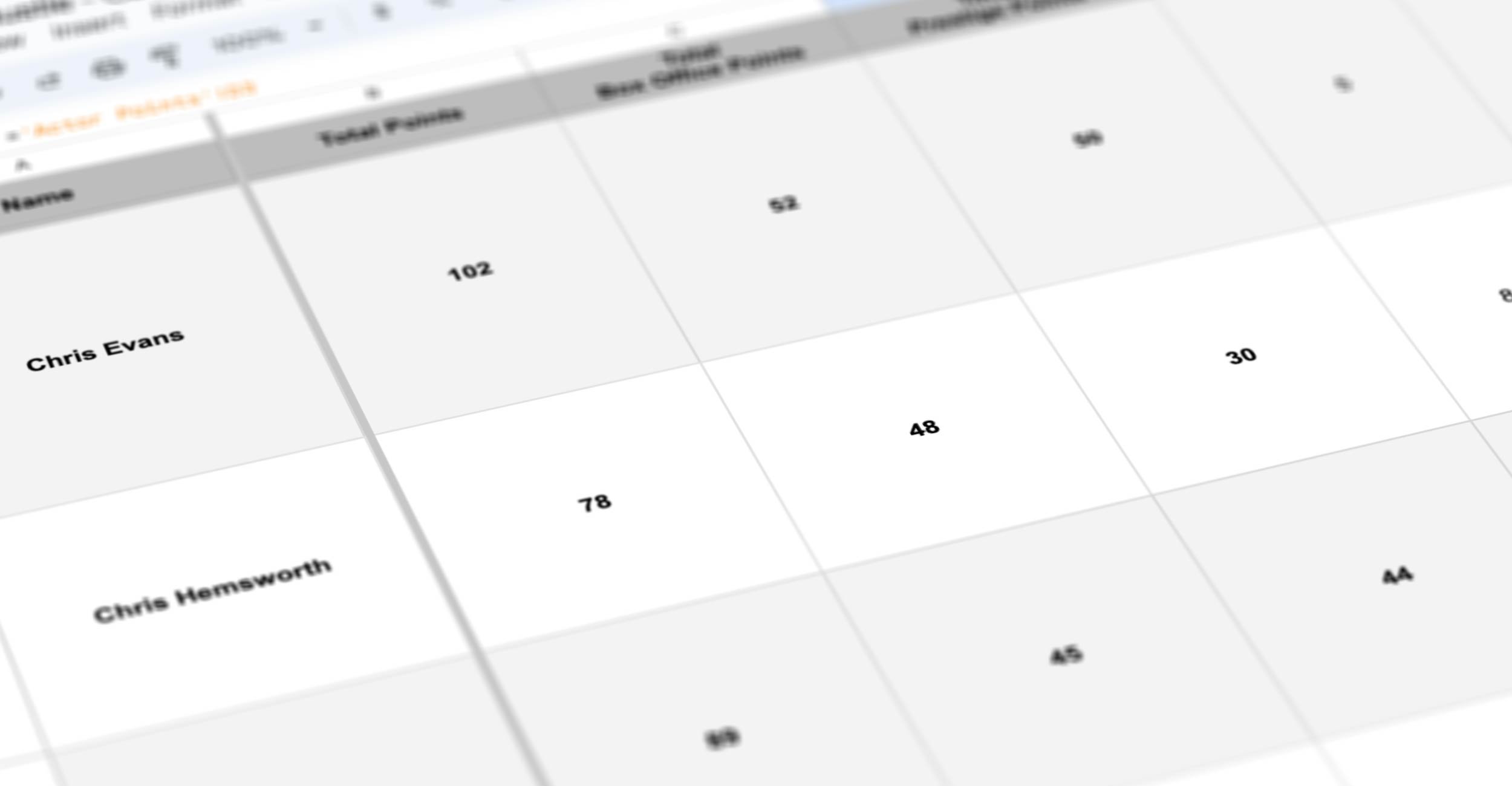
Box Office and Prestige
All of the game’s scoring system is based on two factors: Box Office and Prestige.
If you think about Hollywood, everything essentially comes down to “Box Office” and/or “Prestige.” It’s not uncommon for the “Best Picture of the Year” to be a film that performed terribly at the box office. It’s not uncommon for the highest-grossing movies of the year to never be nominated for a single award. Many actors and directors do the “one for them and then one for me” method, which translates to “one (box office movie) for them and one (prestigious movie) for me.” Some actors and directors have such amazing careers they are considered both box office draws and award contenders.
But what makes a movie star a movie star? What does The Rock have that Robert Pattinson doesn’t and vice versa?
So how do you translate this into quantifiable “scores” that can be measured in a card game? As a fan of nerdy sports stats, I knew the answer was with a ridiculous amount of advanced metrics that add and subtract from the total score.
It didn’t take long for the list of metrics (called “Badges”) to add up. I knew there would be obvious ones like “Action Star” and “Awards Hunter” but also ones like “Has a Lifestyle/Liquor Brand” and “Nepo Baby.” I had GPT help me come up with any I didn’t think of.
I figured I should cap the Actor and Director’s Badges at 50 each so the game wouldn't be a total nightmare. I assigned each badge an amount of points awarded or taken away based on the badge.
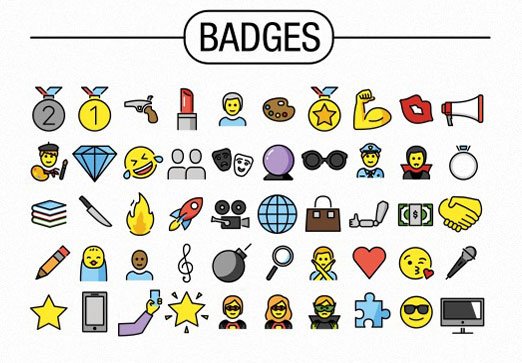
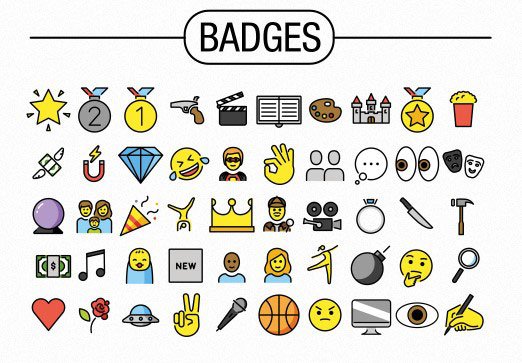
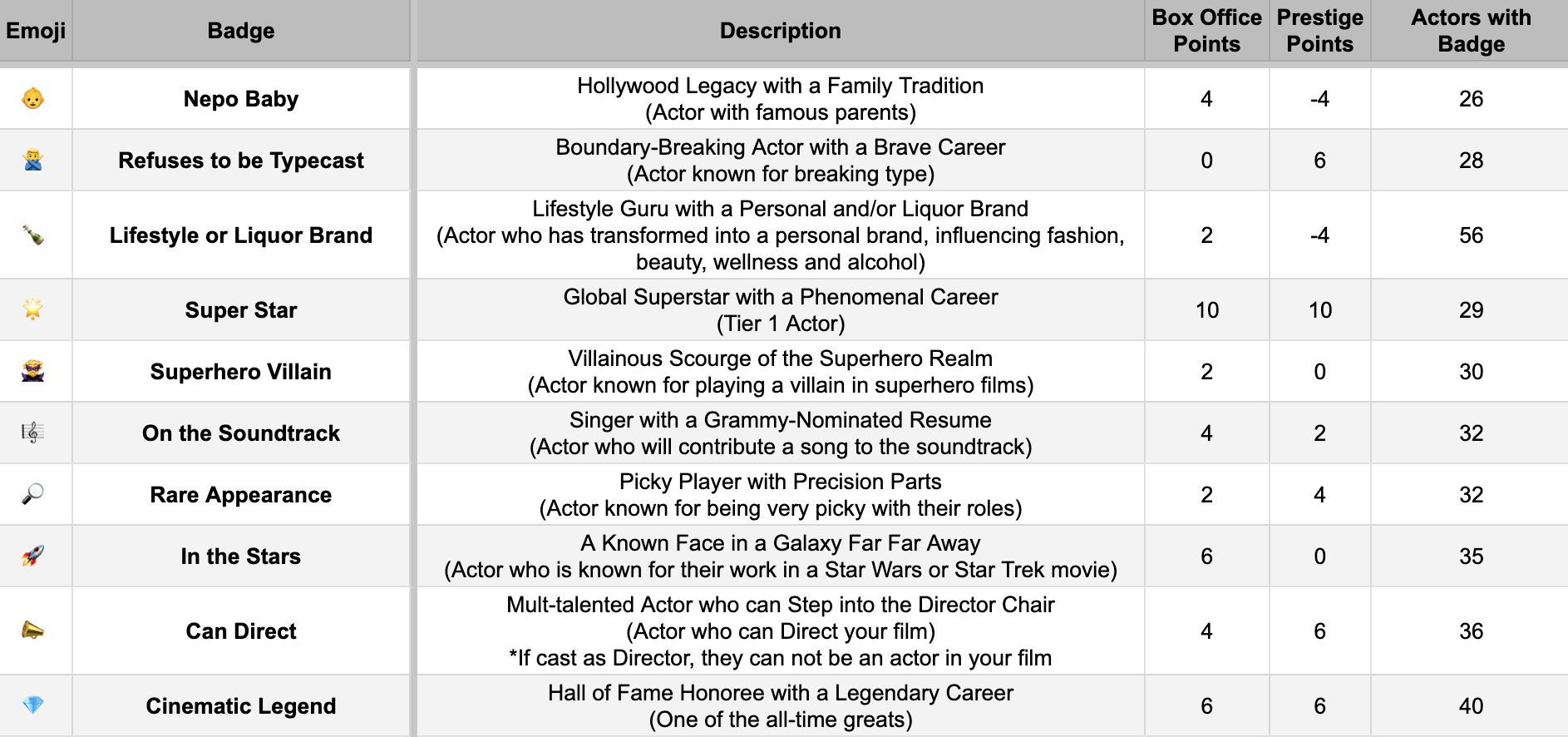
Making the Cards
I then gave GPT my list of badges and explained each one. I told it, “I’m gonna give you the name of an actor and I want you to assign all appropriate badges to that actor.”
And so it went! Tom Cruise: bleep bop boop, here’s all of his badges! Meryl Streep: bleep bop boop, here’s all of her badges! I would check the outputs to make sure there was nothing inaccurate and to check if it missed any. There was a lot of tinkering, but GPT did about 80% of this part of the game creation. It would’ve taken several months to do this by hand. With GPT, it took days.
There were many cases where I thought it gave me a wrong answer, but I just wasn’t aware of it. For example, did you know Josh Brolin has a lifestyle brand?? Sure there were a lot of times when it got some badges wrong or flew off the rails completely, but it’s a lot easier to correct two or three mistakes or start a new GPT chat than research and generate 50 badges per actor and director, by hand.
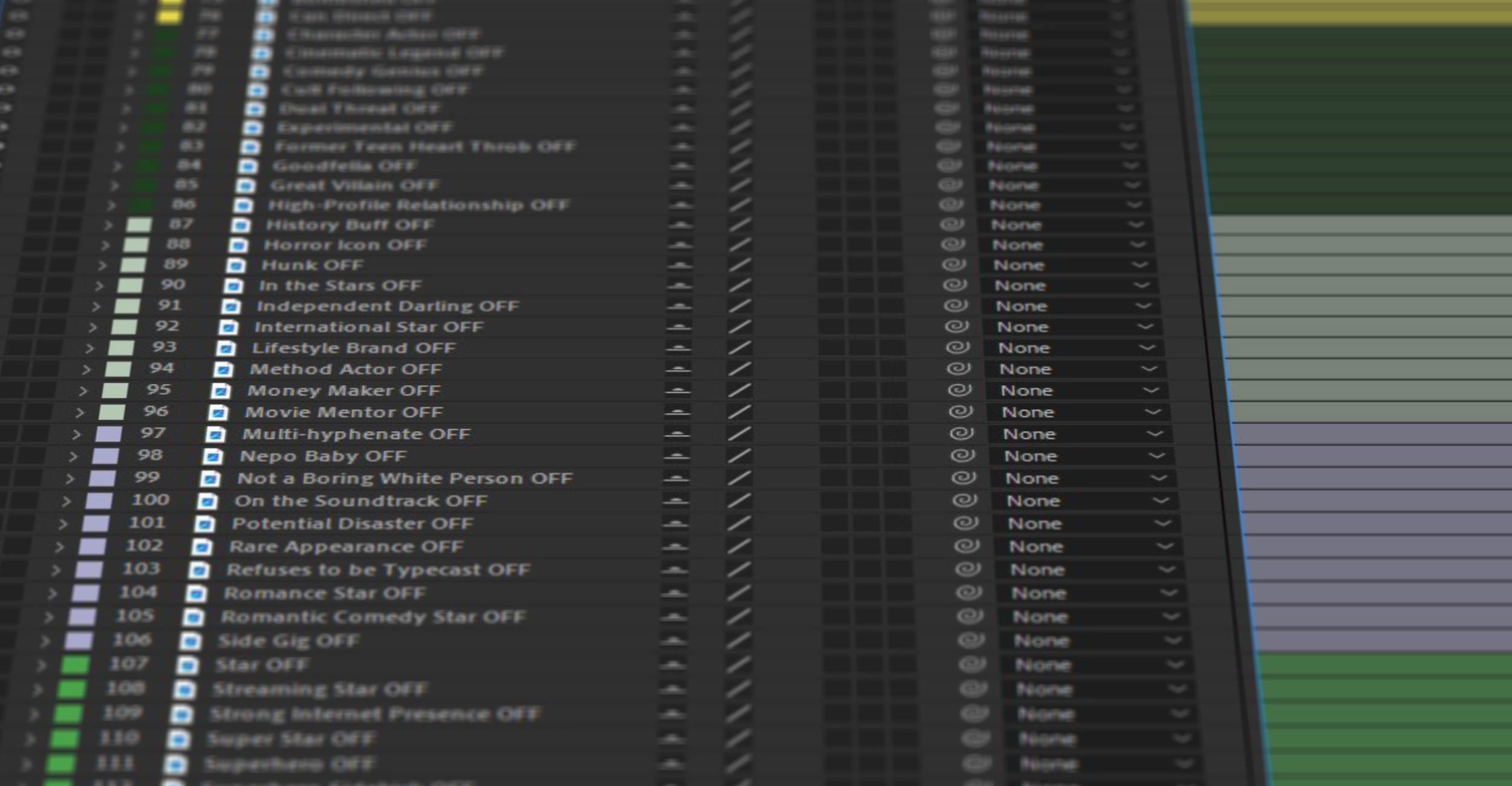
Card Design
Going in, the goal was to create a “prototype” of the game. A Mark 1, if you will. Something I could play with my friends and family, not a finished game that I could sell in stores. I didn’t know if any of this would work or create a truly entertaining game so I didn’t want to get bogged down in the design which is easy for me to do since I love designing stuff.
I mocked up a rough drawing using Procreate and settled on a card layout that would convey all of the information needed.
I cleaned that up and vectorized it in After Effects which is where I would generate all of the actual cards. Instead of concepting and designing 100 actors and director Badges, I simply used well-known emojis that represented each badge. An action star would have the explosion emoji while a crying baby emoji represented the nepo babies.
I then went to IMDB and downloaded the profile photos of each actor and director. I tried to figure out a way to automate this, but couldn’t figure it out. So I did it by hand. I planned for this task to take a couple of days. It took less than an hour. Sometimes doing things by hand doesn’t take as long as you think it does.

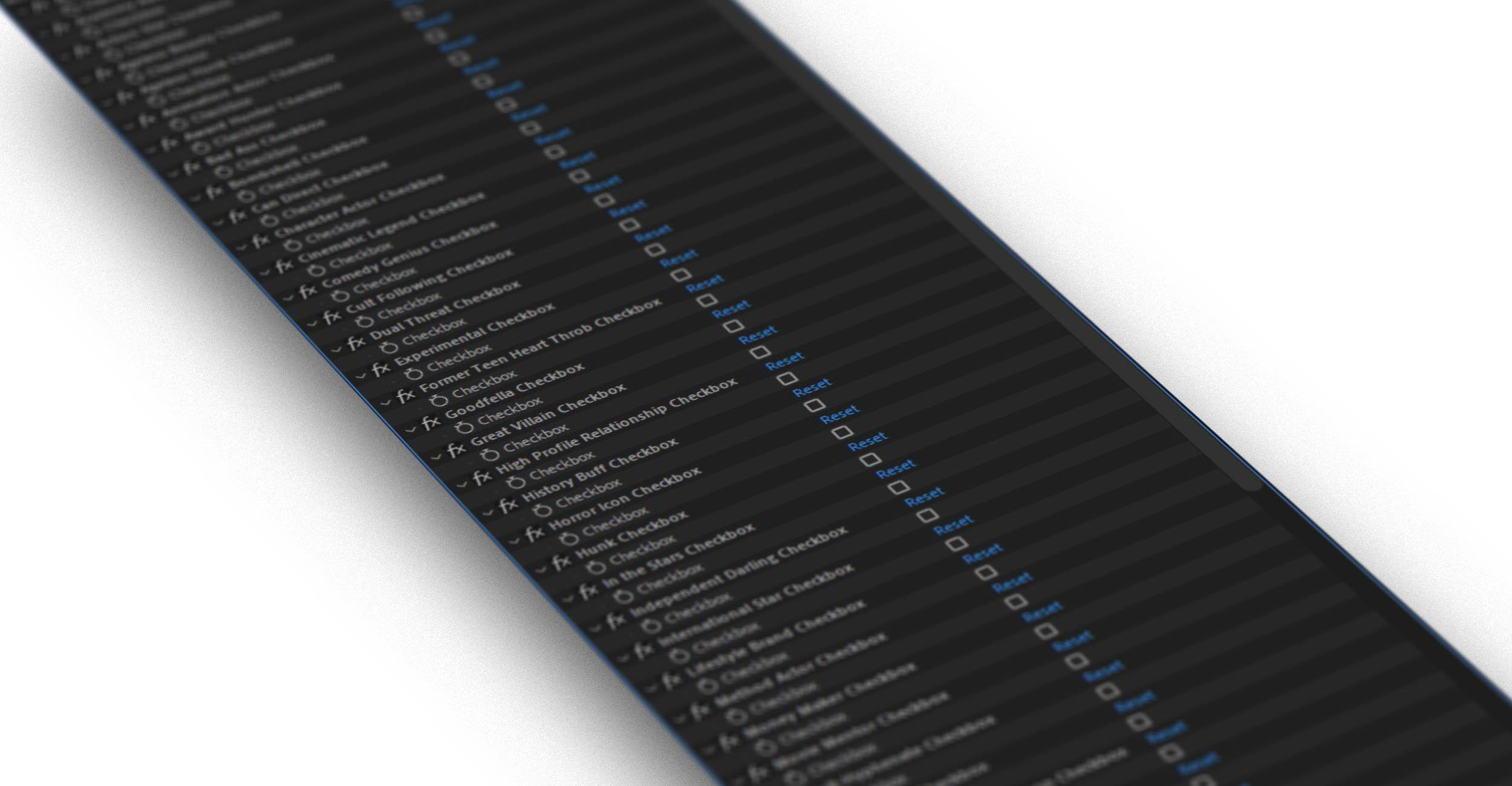
After Effects
Why use the visual effects and motion graphics software Adobe After Effects instead of just using something like Photoshop or Illustrator? Simple: Speed and efficiency.
In After Effects, I built a template for Actors and a template for Directors. Using some JavaScript from GPT, I made it so the name on the card automatically matched whatever the comp name was. So when a card had the comp name “Actor_Card_Samuel_L_Jackson”, the name on the card automatically updated to “Samuel L Jackson,” on three different lines. This sort of shit was genuinely beyond comprehension to me before GPT and now I was using it in practice. Wild.
Using another Javascript expression, I built a “Badge Control” to handle all of the badges. It was a checklist of all 50 badges (for actors and directors, respectively) and I would go through and simply “check” all of the boxes for each badge and they would turn on or stay dark automatically.
Using True Comp Duplicator, I would duplicate the template, rename it (which auto-updated the name on the card), click all of the badges, replace the photo, type in the scores (calculated automatically in Google Sheets) and it was done. I then repeated the whole process for all directors. It took weeks to do this part since so much of it was being done by hand. But it was still light years faster than doing it by hand in Photoshop or Illustrator.
Once the most laborious part of the game creation was complete, I placed all of the cards into a single timeline, one frame each. When all was done, I rendered out the Actor and Director timelines as a PNG Image Sequence, and voila! All the cards are done and ready to print!
Doing something this automated using Illustrator or Photoshop was not possible for me at the time, even with GPT. Believe me, I asked.
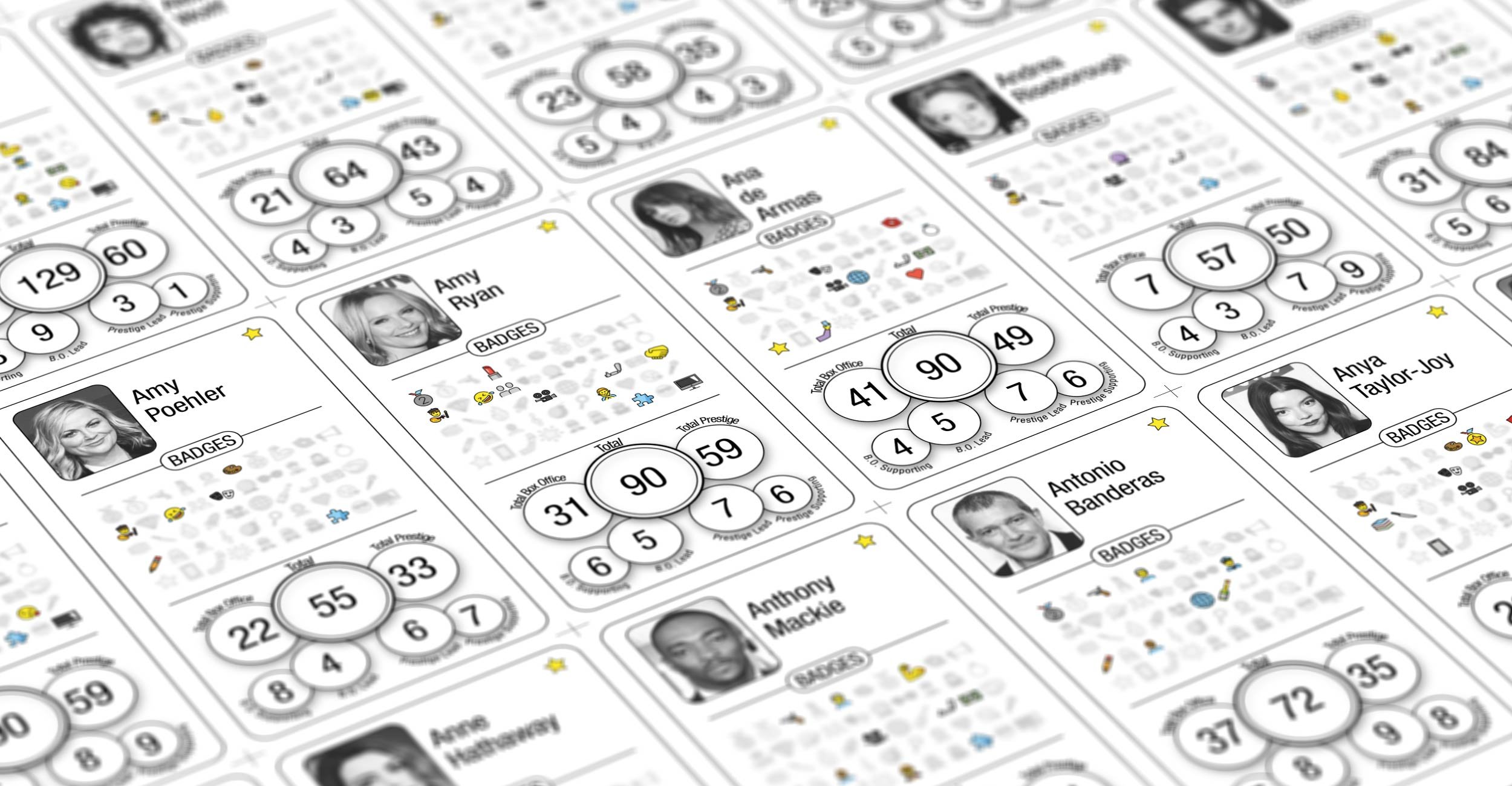
Time to Print
I designed every card in the game to fit a standard business card. You know those blank business card sheets at office supply stores that make it super easy to make and print business cards at home? Turns out, they’re super freaking expensive!! Woo WEE that was a buzzkill standing in the aisle of Staples doing the math on my phone after spending three months making all of these goddamned cards!
But there’s always a solution! Turns out I had boxes of blank poster paper that were backstocked for other projects. I fit all of the cards onto sheets of 11x17 paper, printed them out, front and back, and then used a cheap paper cutter to chop them up. Cards from real card games are glossy and slide around easily. Mine stick together like sandpaper. But like I said, this is just a prototype!
But now it was nearly a finished prototype! I ordered some special “Yes/No” dice on ETSY and designed some custom scorecards to help producers keep track throughout the game. Finally, I used GPT to help me write up the official rules so they’d be easy to read and follow universally.
Holy shit! It was time to play!
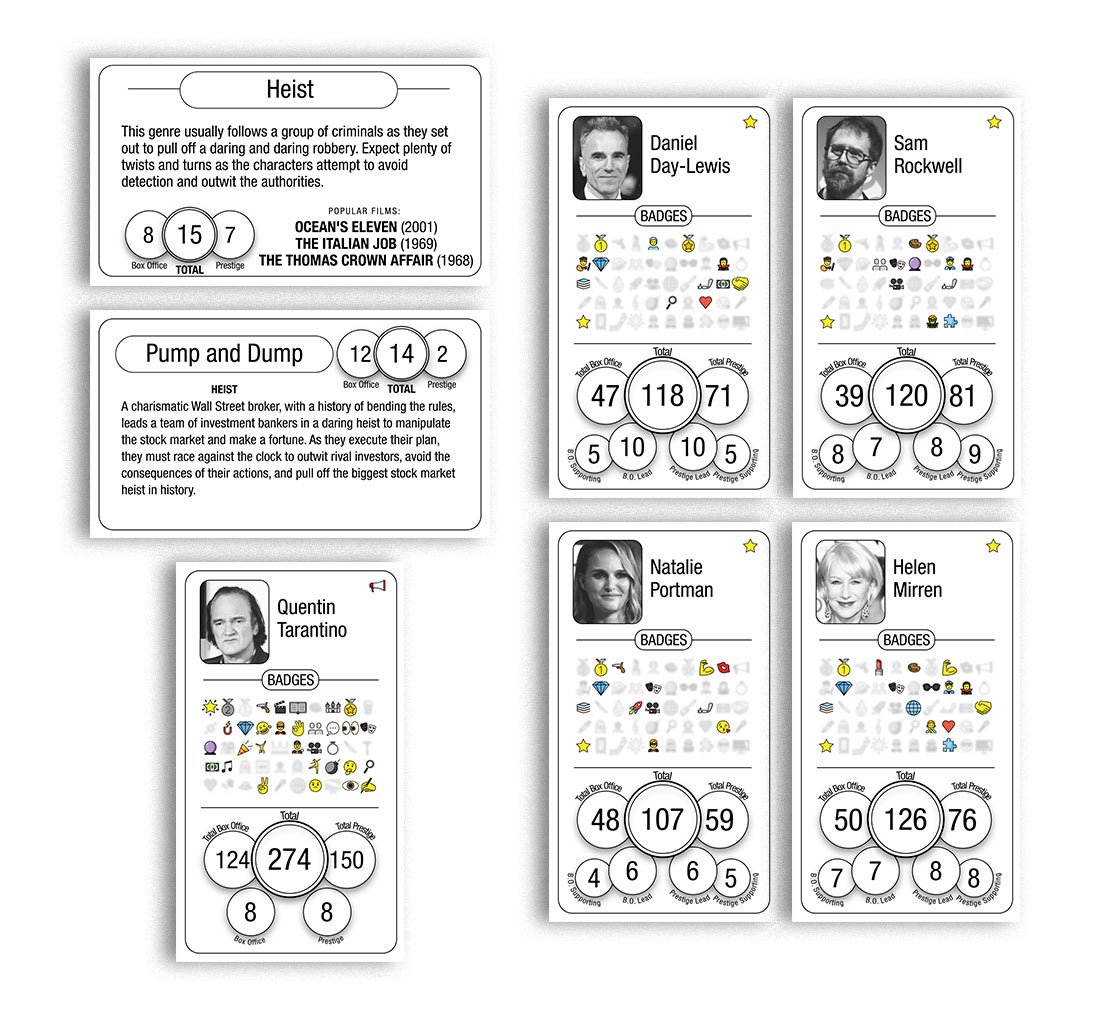
Let’s Play!
Turns out, this game is really fun to play! Annie and I played it a few times and quickly discovered there were some score weighting issues with the Buzz and Pitch cards, and changed the number of rounds, but those were easy fixes that I immediately implemented. Now that it’s fixed…
This game rocks! It’s super fun!
From the beginning, the goal was to create a game where there wasn’t a definitive “winner” because that just simply doesn’t happen in Hollywood. Even Tom Cruise makes The Mummy every once in a while.
One thing I’m proud of is if you look at the highest-ranking actors and directors, as of Q1 2023, Hollywood Hustle was pretty dang accurate. I never once “predetermined” where an actor or director would rank amongst the others. I simply assigned their badges, which had their pre-determined values, and those combinations created the final scores. So that was cool to see! If I can do this with a made-up card game and 50 badges, just imagine the spreadsheets CAA and UTA have on talent in the world…
But what I’m most proud of is how fun this game is to play. Whenever I play it with friends and family, there is a moment when someone pulls just the right card for their movie and they get super excited. I’ll never forget the look on my Mom’s face when she drew the “Florence Pugh” card like it was an ace of spades. Florence Pugh was PERFECT for my Mom’s movie and we all knew it. That feeling of excitement is exactly what I felt when I first played Cinephile but had no game to play. Now anyone can play the game I had in my head Christmas 2022.
And if it wasn’t for ChatGPT, it never would’ve been possible.
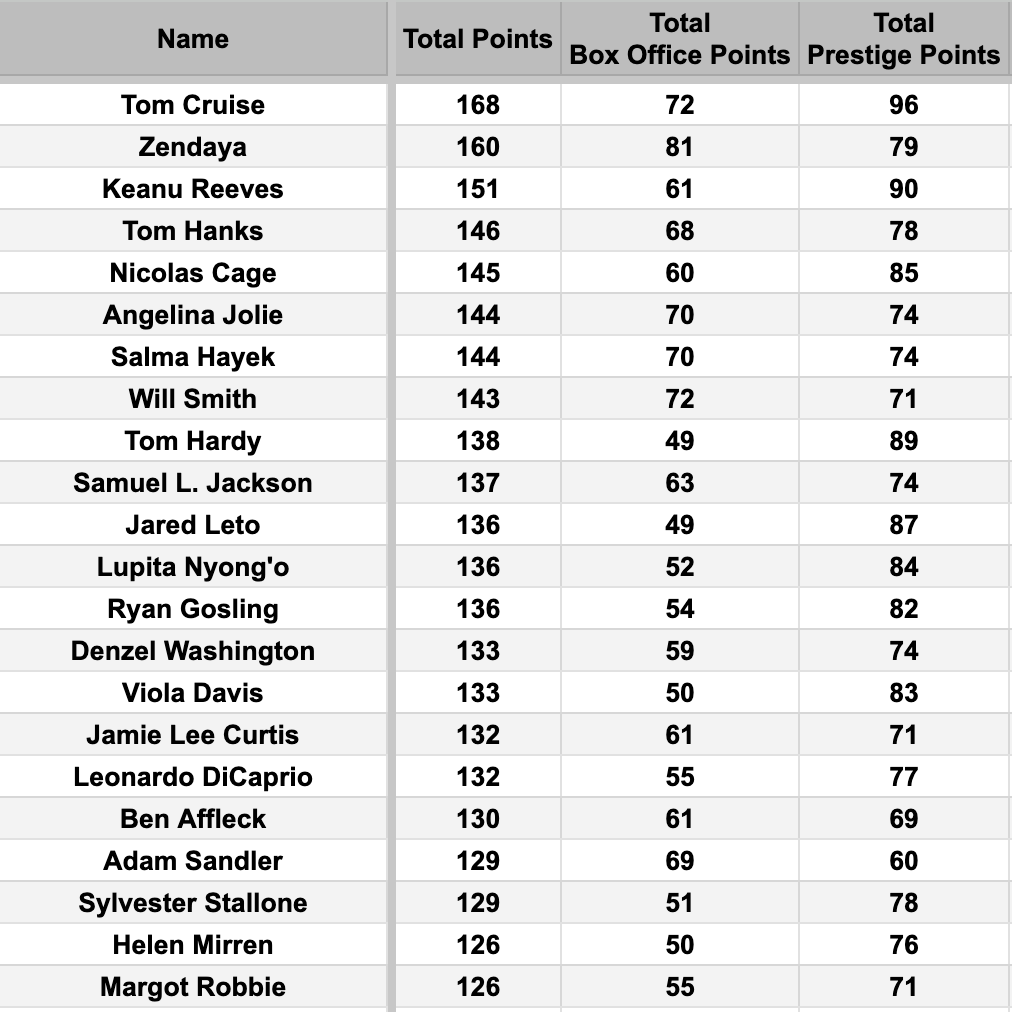
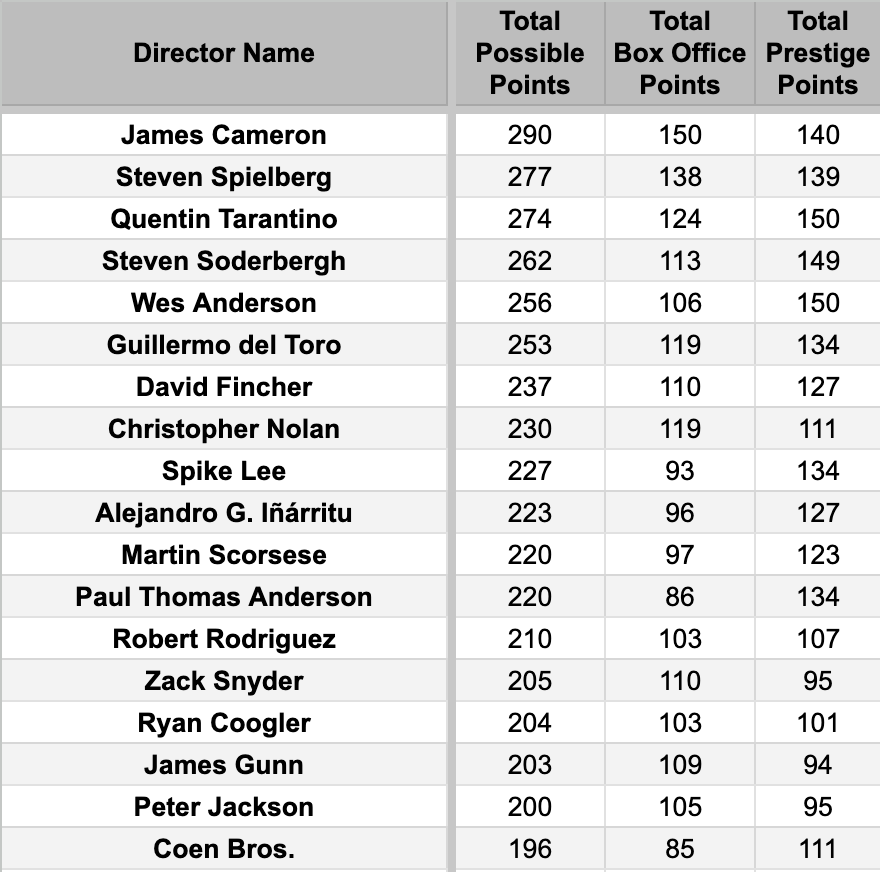
Buzz & Pitch Cards
There are 40 Buzz Cards and 33 Pitch Cards. Here’s an example of some below.
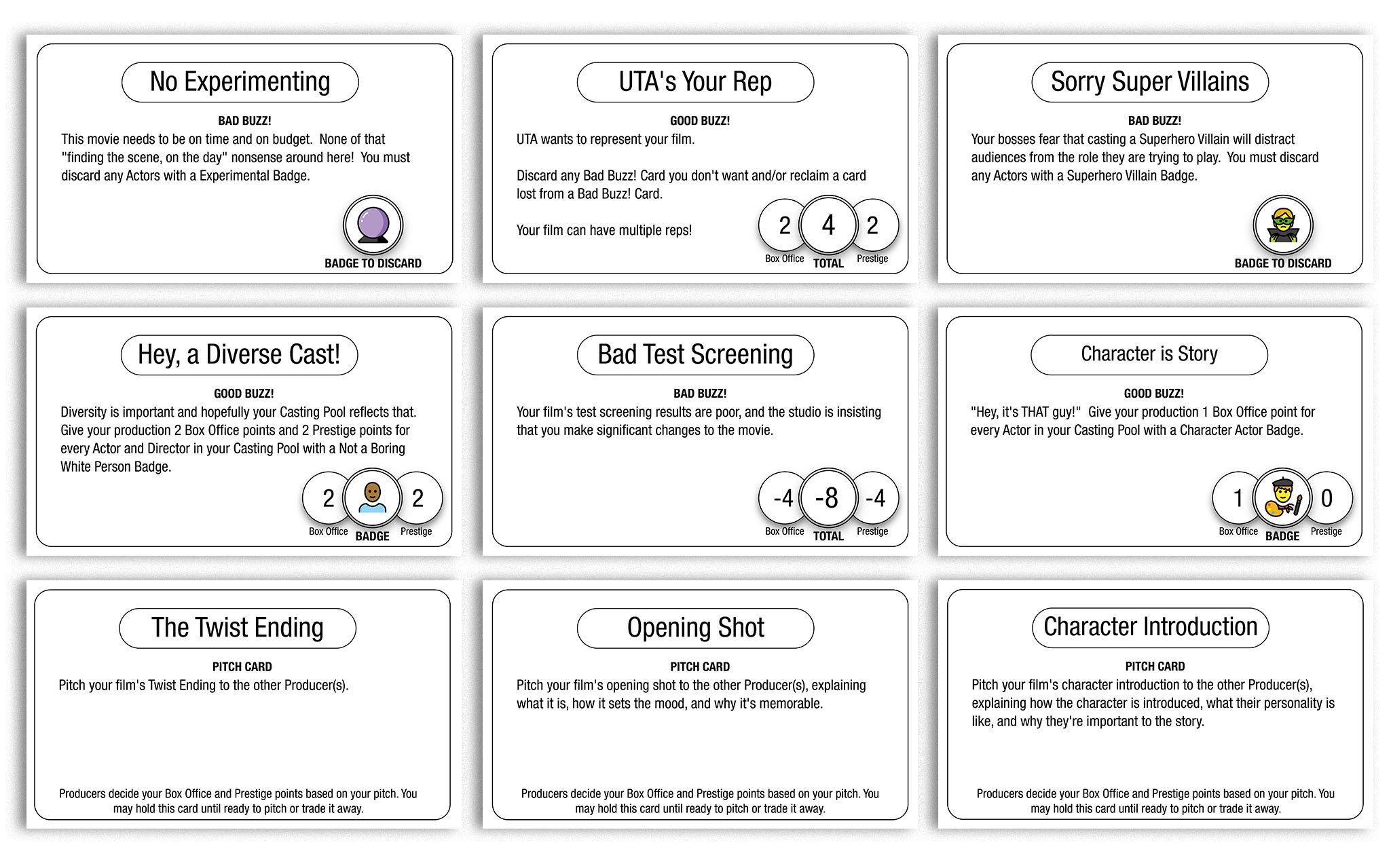
Genre & logline Cards
There are 35 Genre cards and 390 Logline cards. Here’s an example of some below.
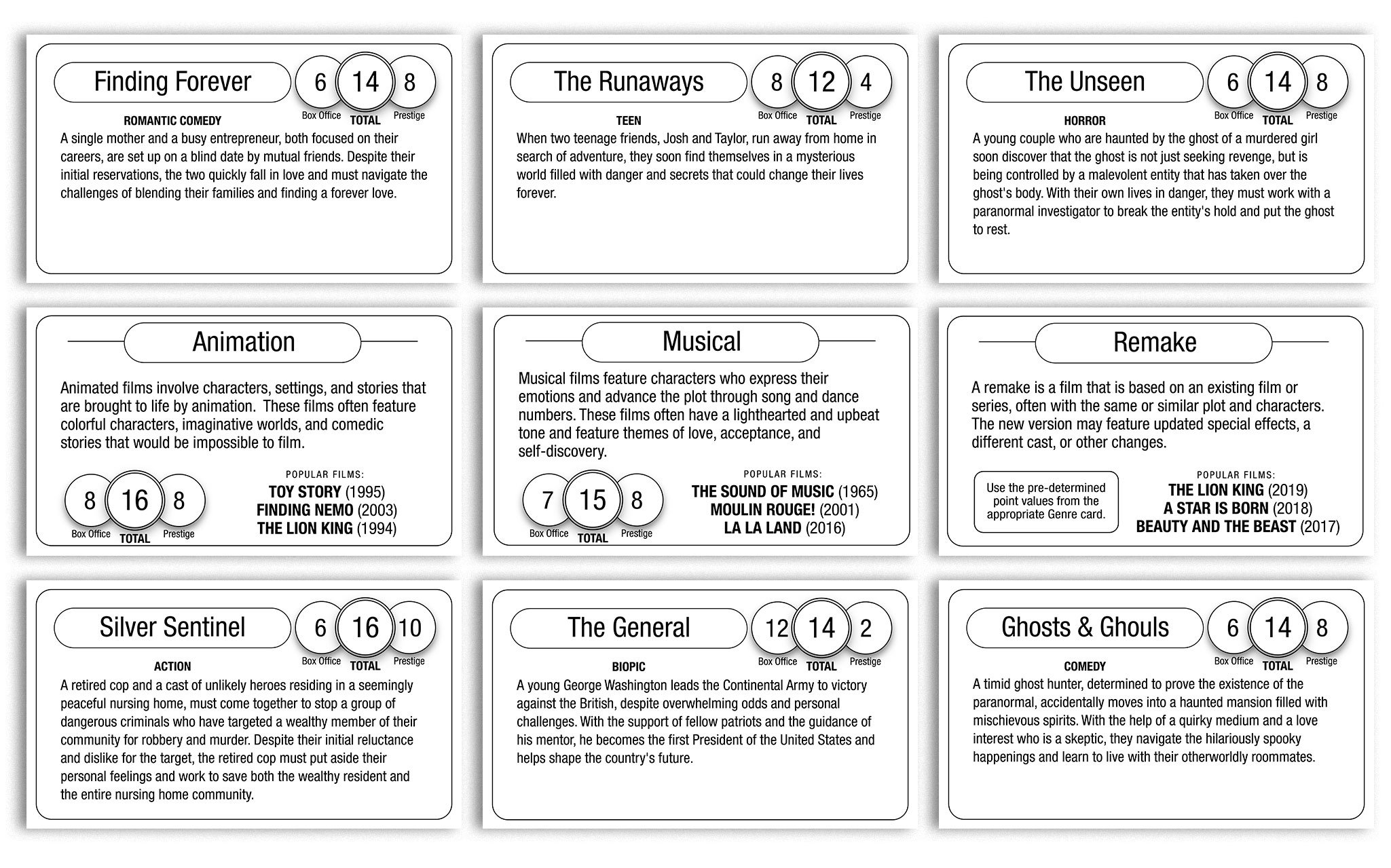
Prototype Gameplay
Here’s a photo of one of the first times I ever played the game. It was before I even made the scorecards. You can see just how many cards there are in this massive game. It’s awesome!
It’s not uncommon to have long moments where all players sit quietly organizing their cards and figuring out the best movie possible.
Pitch Cards really get the creative juices going!
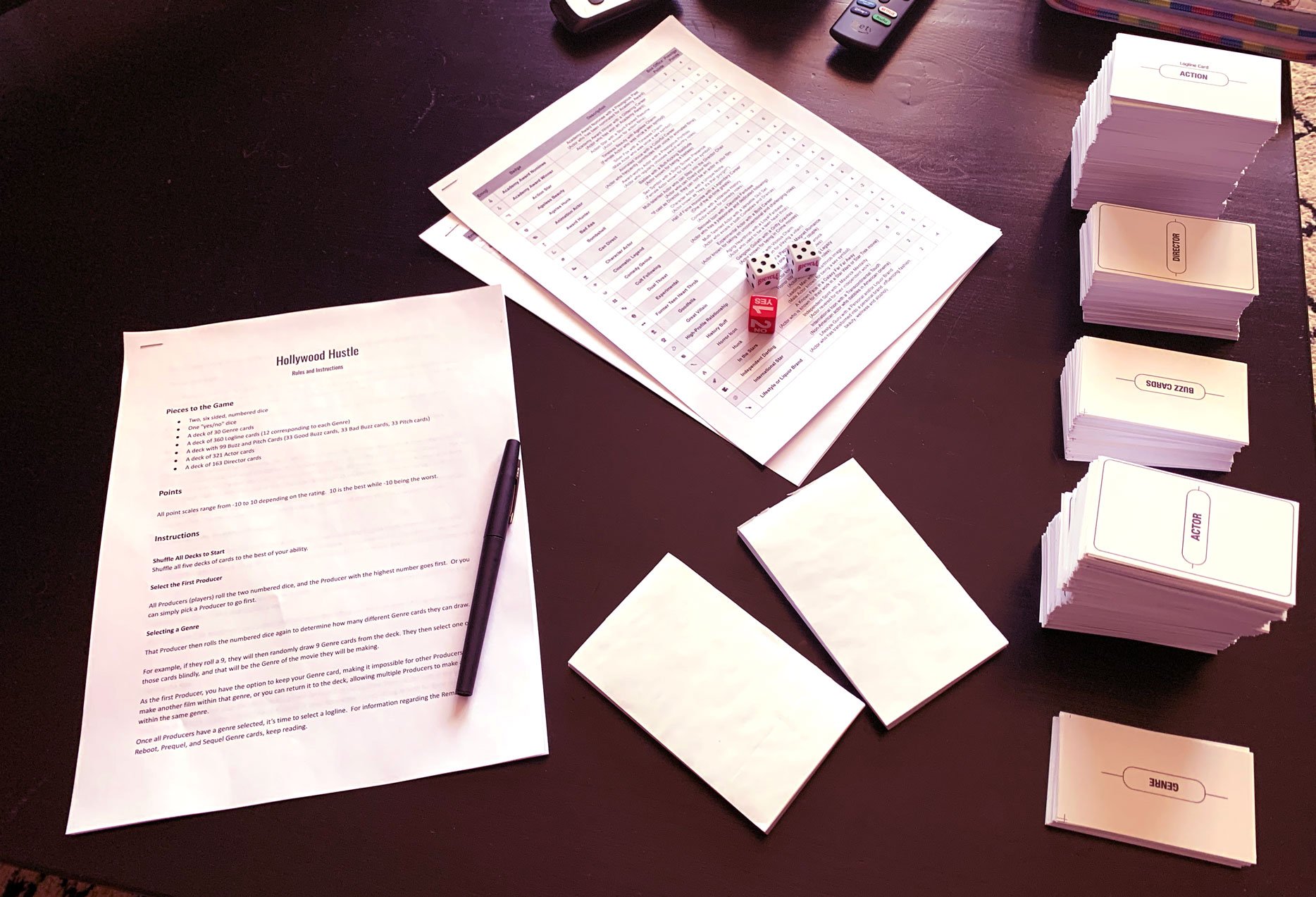
More AI Fun!
What’s even more fun is after the game is over and the “winners” are declared, is take the movie you’ve created to Midjourney or Dall-E and make movie posters and imagery from the movie. Synthetic imagery is getting better by the day, so this aspect is only getting more fun.
Pro Tip: Take your movie name, logline, director, and cast to GPT and ask for 8 different Midjourney prompts for 8 different scenes in your movie. Bleep blop boop, copy and paste into Midjourney, bleep blop boop, and there are your images.
AI isn’t all evil deep fakes and manipulation. Most of the time it’s used for something genuinely creative and harmless fun.
Below are four movies we made playing Hollywood Hustle!


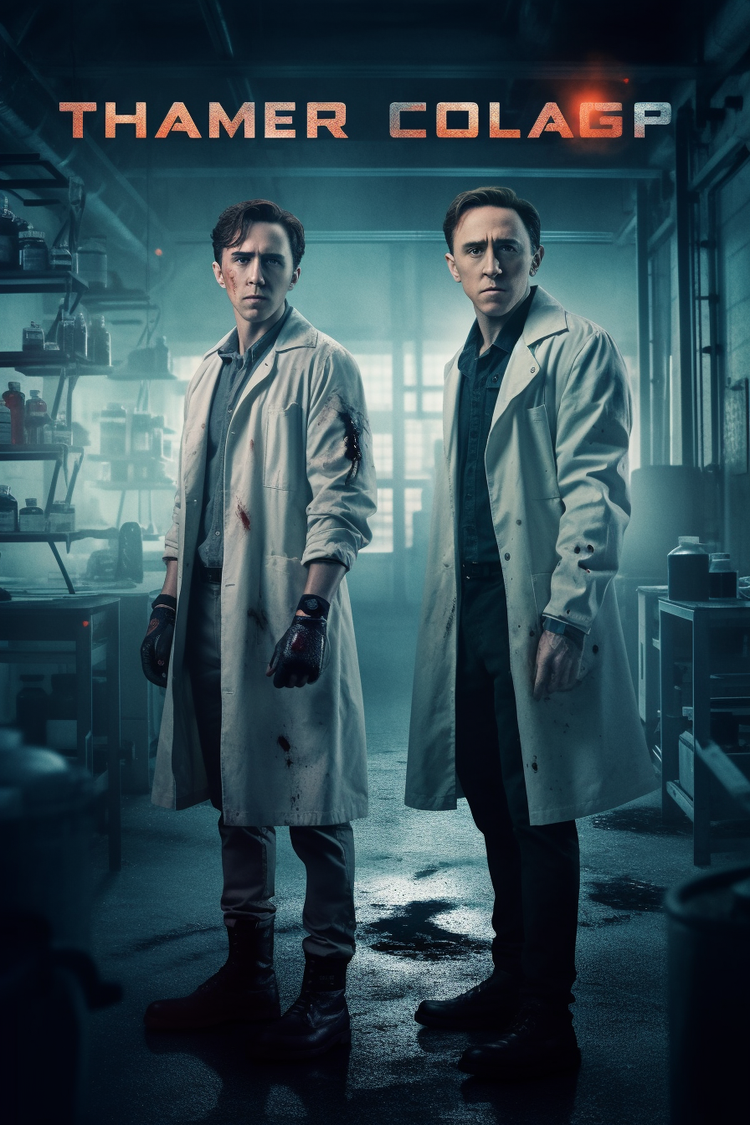

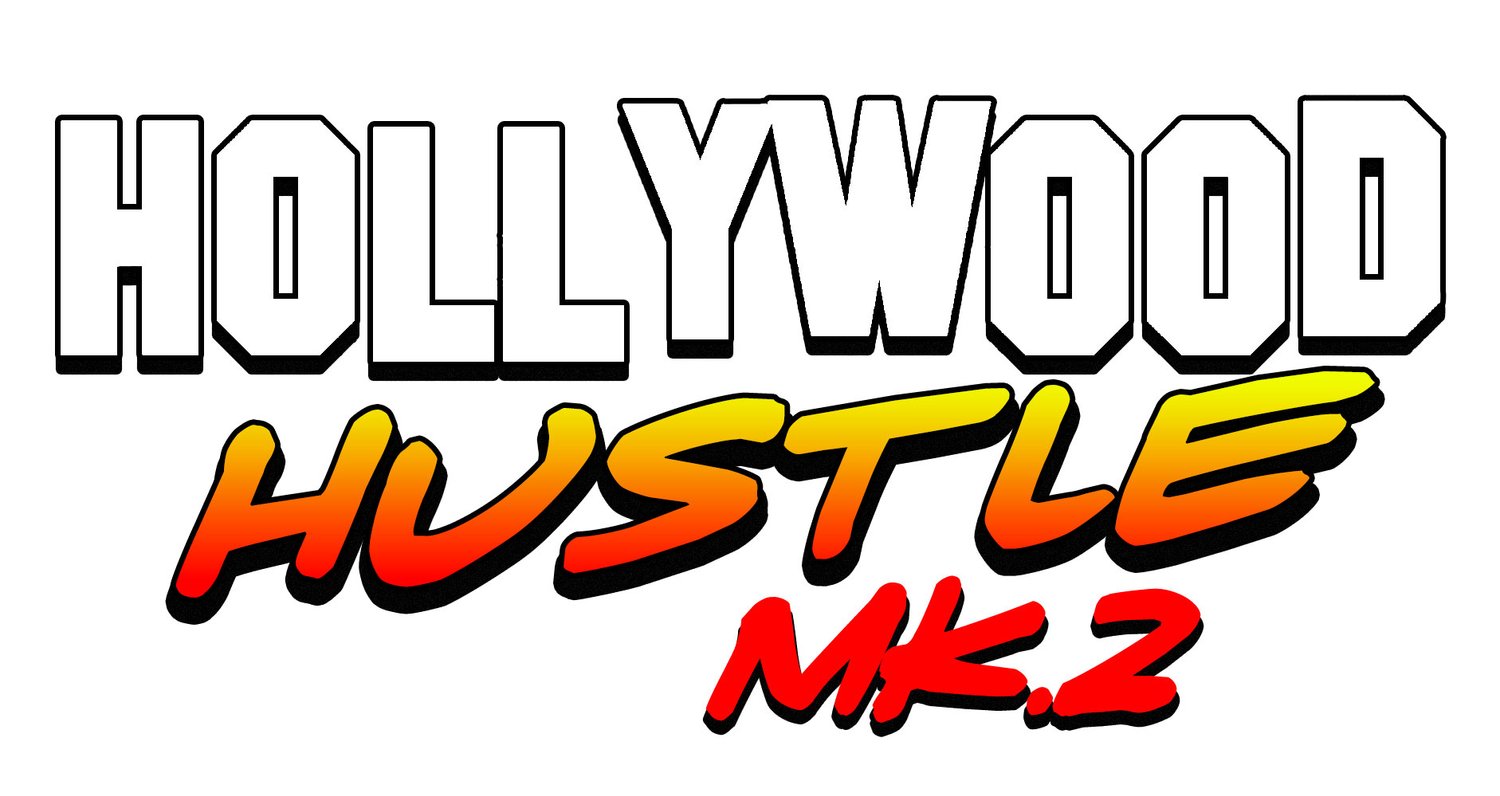
What's Next?
Now that I have a working prototype, I can play this game with my friends and family, which pretty much scratches the itch. However, if I wanted to continue this project, the next phase would be to play it a bunch and make notes of which cards need to be updated (which I am doing, passively).
After Effects is kind of an inconvenient and clunky tool for this type of project and I’ve been using Python more and more for this type of thing, so I might build a Python code and GitHub with libraries that could theoretically be transferred from one system to another pretty easily. But most of all, if I ever make a Mark II, I will take the time to do a full branding package and design the hell out of it all so it looks and feels like a real game.
Maybe one day I’ll make a Kickstarter or Patreon to fund the production of this thing when it’s good and ready. Maybe then we can print on cards that aren’t like sandpaper.
But until then, I’m going to continue making awesome movies playing Hollywood Hustle!
A game that was once just a fun idea but is now a reality thanks to a little hard work and AI.
